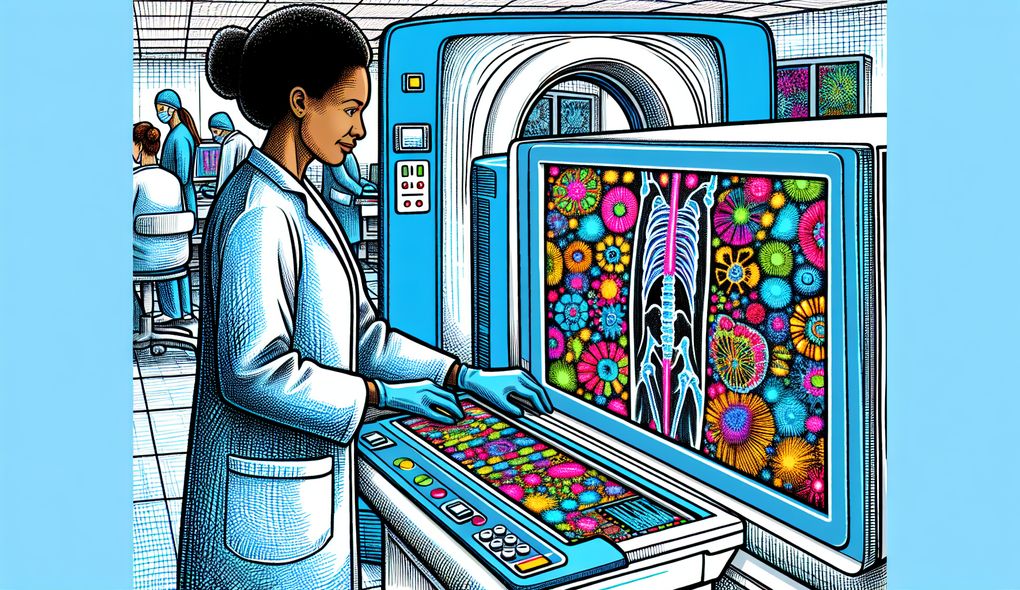Have you ever encountered a challenging patient or situation during a fluoroscopic procedure? How did you handle it?
INTERMEDIATE LEVEL

Sample answer to the question:
Yes, I have encountered a challenging patient during a fluoroscopic procedure. The patient was extremely anxious and claustrophobic, making it difficult for them to stay still. I handled the situation by taking the time to talk to the patient and explain the procedure in detail, addressing their concerns and offering reassurance. I made sure to create a calm and supportive environment by adjusting the lighting and playing soothing music. Additionally, I used distraction techniques such as engaging the patient in conversation and providing them with a stress ball to hold onto. Despite the initial challenges, I was able to successfully complete the procedure by maintaining open communication with the patient and adapting my approach to their needs.
Here is a more solid answer:
Yes, I have encountered a challenging patient during a fluoroscopic procedure. The patient had a high level of anxiety and fear, which made it challenging for them to cooperate. To handle the situation, I first introduced myself and spent extra time explaining the procedure to the patient in a calm and reassuring manner. I addressed their concerns and answered any questions they had. I also made sure to involve the patient in the process by asking for their cooperation and providing them with clear instructions on how to position themselves. I adjusted the lighting in the room to create a more comfortable atmosphere and played some soft music to help distract the patient from their anxiety. Throughout the procedure, I maintained open communication with the patient, constantly checking in on their well-being and providing encouragement. By adapting my approach to the patient's needs and maintaining a supportive environment, I was able to successfully complete the procedure while ensuring the patient felt cared for and comfortable.
Why is this a more solid answer?
The solid answer provides a more detailed description of encountering a challenging patient during a fluoroscopic procedure. It includes specific actions taken by the candidate, such as spending extra time explaining the procedure, addressing concerns, involving the patient in the process, and maintaining open communication. The candidate also mentions creating a comfortable environment by adjusting lighting and playing soothing music. However, it could still be improved by providing further examples of collaboration with the healthcare team and highlighting any specific outcomes achieved.
An example of a exceptional answer:
Yes, I have encountered a challenging patient during a fluoroscopic procedure. The patient had a severe needle phobia, which made it extremely challenging to perform the procedure. To handle the situation, I coordinated with the healthcare team to develop a comprehensive plan to address the patient's fear and minimize their discomfort. We scheduled multiple pre-procedure counseling sessions to discuss the patient's concerns and develop coping strategies. During the procedure, I took extra precautions by using a smaller needle and administering a local anesthetic to reduce pain. I involved a nurse to provide emotional support and distraction techniques while I focused on operating the fluoroscopic equipment. The team also coordinated with a psychologist to provide ongoing therapy to help the patient overcome their phobia. By collaborating with the healthcare team and tailoring our approach to the patient's specific needs, we were able to successfully complete the procedure and significantly reduce the patient's anxiety. This experience taught me the importance of teamwork and the value of a multi-disciplinary approach in providing high-quality patient care.
Why is this an exceptional answer?
The exceptional answer provides a comprehensive and detailed description of encountering a challenging patient during a fluoroscopic procedure. The candidate demonstrates exceptional collaboration with the healthcare team by coordinating pre-procedure counseling sessions, involving a nurse for emotional support, and collaborating with a psychologist for ongoing therapy. The answer also highlights specific techniques used to address the patient's fear and minimize their discomfort, such as using a smaller needle and administering a local anesthetic. The candidate emphasizes the successful outcome of the procedure and the valuable lessons learned about teamwork and a multi-disciplinary approach. This answer exceeds the solid answer by providing more specific examples of collaboration and outcomes achieved.
How to prepare for this question:
- Familiarize yourself with common patient challenges and fears related to fluoroscopic procedures, such as claustrophobia and needle phobia. Research coping strategies and techniques to address these concerns.
- Develop strong communication skills to effectively explain procedures to patients and address their concerns. Practice using clear and reassuring language.
- Learn about distraction techniques and comfort measures that can be used to create a calm and supportive environment for patients during procedures. Explore methods such as adjusting lighting, playing soothing music, and providing stress-relief items.
- Understand the importance of collaboration in a healthcare team. Familiarize yourself with the roles and responsibilities of other team members involved in fluoroscopic procedures, such as nurses and psychologists. Practice effective communication and coordination with the team.
- Reflect on past experiences where you encountered challenging patients or situations during fluoroscopic procedures. Consider the strategies you used to handle those situations and the outcomes achieved. Be prepared to discuss specific examples during the interview.
What are interviewers evaluating with this question?
- Patient care and communication skills
- Ability to work collaboratively in a healthcare team

